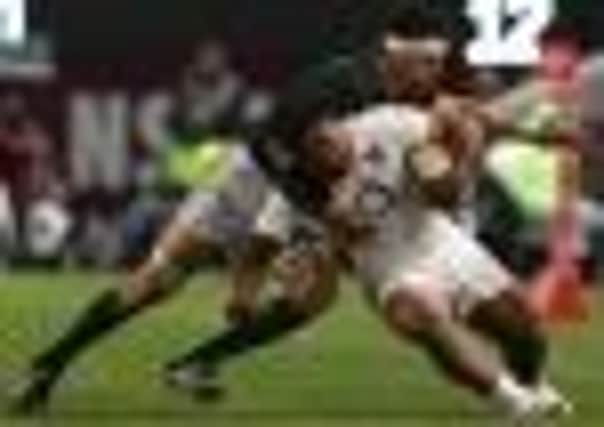Allan Massie: Reality check for Home Nations casts warm glow on Scots’ win


Few can really have expected Ireland to beat New Zealand but, even though there were good flashes of Irish play, the ease with which the All Blacks shrugged them off and ran in tries was startling. Watching the game didn’t exactly leave one looking forward confidently to the NZ visit to Murrayfield in November.
Wales, as so often against southern hemisphere opposition, flattered to deceive. They had their moments, but Australia had more, and the Australian back row made the Welsh one, which had shone so brightly in the Six Nations, look decidedly second rate. The Welsh management may have learned that having a couple of props as their defenders close to a ruck is not the brightest idea when the opposition have a scrum-half as fast and strong as Will Genia; he went between them as if they had been a couple of traffic cones. Nevertheless, Wales do have the talent to win one of the remaining two Tests.
Advertisement
Hide AdAdvertisement
Hide AdEngland’s revival under Stuart Lancaster came to a juddering halt in Durban, the final score of 22-17 flattering them. We have enough experience ourselves of scoring so-called consolation tries in stoppage time when the match is already lost, which is not to mock our southern cousins for taking pleasure in Ben Foden’s fine try. Yet their last minute spurt came when the Springboks knew they had won the match, and perhaps relaxed a wee bit. So one can’t think it of much significance.
The match was won and lost in the first thirty minutes of the second half when the South African dominance was complete and brutal. They were so sure they had England on the ropes that they even spurned the chance to kick an easy penalty, preferring to run the ball. They would never have made that decision against the All Blacks.
One feels for young Owen Farrell. He had only an average game, but he is now being subjected to the hero-to-zero, rooster-to-feather-duster, treatment, in which the English media and English fans seem to delight. Just as his performances in the Six Nations were overrated, so now the harsh criticism directed at him is unbalanced.
Never mind: the English still, for the moment anyway, love young Manu Tuilagi for his spirited and powerful running. Fair enough, the boy is a remarkable force of nature. The trouble is that he is also a centre three-quarter who asks only one question of the opposition: Can you stop me? The best centres, like Conrad Smith today, always try to leave the opposition guessing. That’s to say, they pose more than one question. If, however, the only question is “Can you stop me?”, there need be no head-scratching. The Springboks knew what Tuilagi was going to do. So they were able to put two tacklers on to him, because they also knew what he wasn’t going to do, which was to pass the ball.
At this stage of his development young Tuilagi is like Mathieu Bastareaud when he came into the French team at the same tender age: powerful, and even alarming, but never puzzling. So other teams quickly worked Bastareaud out – and where is he now? If Manu Tuilagi moved the ball on the first two or three times he got it, his chance of making a break would be much better. Centres who remember that their first duty is to act as a link are more likely to find opportunities opening before them.
In these days of blanket, rugby league-style defences which so often force teams into playing the “one-pop pass, drive into the tackle, one-pop pass” and so on style of game, attacking rugby is more difficult than it used to be, simply because there is less space on the field. More difficult, but not impossible, as the best teams show. Watch the All Blacks or, at club level, Leinster in Europe, and you see that the game can still be free-flowing. The requirements are what they have always been: pace, precision and imagination. Any team which is capable of playing at speed, passing accurately, and seeking to do the unexpected, will ask more questions of the opposition than even the best-organised defence can be sure of answering.
Conversely, any team which reacts slowly to what is before it, which is uncertain in its handling, and which is easily predictable, will find it all but impossible to score tries, except occasionally from a succession of forward drives, picking-and-going a few yards from the try-line.